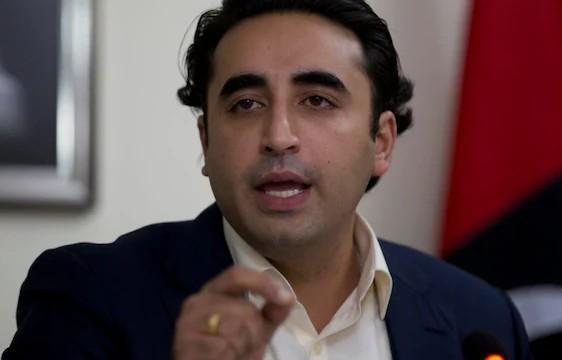
Pak Copies India Again, to Send Bhutto-Led ‘Peace’ Delegation to Other Countries
Pakistan has once again been caught imitating India, this time by announcing a ‘peace’ delegation led by Bilawal Bhutto, the Chairman of the Pakistan Peoples Party (PPP), to various countries. This move is seen as a direct copycat of India’s decision to send seven global delegations led by Members of Parliament (MPs) from various parties to spread the country’s anti-terror message.
The announcement was made by Prime Minister Shehbaz Sharif, who revealed that he had personally contacted Bilawal Bhutto to lead the delegation on the international stage. This move comes just days after Prime Minister Narendra Modi’s visit to the Adampur airbase, which was subsequently copied by PM Sharif when he visited the Pasrur Cantonment.
Pakistan’s decision to send a ‘peace’ delegation led by Bilawal Bhutto is seen as a desperate attempt to counter India’s efforts to spread its anti-terror message globally. The country has been facing intense scrutiny over its alleged involvement in terrorist activities, and its efforts to whitewash its image have been consistently rebuffed by the international community.
India’s decision to send seven global delegations led by MPs from various parties was seen as a bold move to counter Pakistan’s propaganda and spread its anti-terror message globally. The delegations were tasked with highlighting India’s efforts to combat terrorism and its commitment to regional and global peace.
Pakistan’s decision to send a ‘peace’ delegation led by Bilawal Bhutto is seen as a weak attempt to counter India’s efforts. The delegation is expected to visit various countries, including the United States, Europe, and other regions, to spread Pakistan’s version of the truth about the situation in Kashmir and the region.
However, experts say that Pakistan’s efforts are unlikely to succeed, as the country’s reputation has been severely damaged due to its alleged involvement in terrorist activities. The international community has consistently condemned Pakistan’s actions, and the country’s isolation is likely to continue unless it takes concrete steps to address the concerns of the global community.
Pakistan’s decision to send a ‘peace’ delegation led by Bilawal Bhutto is also seen as an attempt to divert attention from the country’s internal issues. The country is facing severe economic and political crises, and the government is under pressure to deliver on its promises to the people.
The PPP leadership has been facing criticism over its handling of the economy, and the party is struggling to regain its lost momentum. The decision to send a ‘peace’ delegation led by Bilawal Bhutto is seen as a desperate attempt to shift the focus away from the country’s internal issues and project a positive image globally.
In conclusion, Pakistan’s decision to send a ‘peace’ delegation led by Bilawal Bhutto is a clear case of imitation, and it is unlikely to have any significant impact on the global stage. The country’s reputation has been severely damaged due to its alleged involvement in terrorist activities, and it is unlikely to regain its credibility unless it takes concrete steps to address the concerns of the global community.
The international community has consistently condemned Pakistan’s actions, and the country’s isolation is likely to continue unless it takes concrete steps to address the concerns of the global community. India’s decision to send seven global delegations led by MPs from various parties was a bold move to counter Pakistan’s propaganda and spread its anti-terror message globally.
In contrast, Pakistan’s decision to send a ‘peace’ delegation led by Bilawal Bhutto is a weak attempt to counter India’s efforts. The country’s reputation has been severely damaged due to its alleged involvement in terrorist activities, and it is unlikely to regain its credibility unless it takes concrete steps to address the concerns of the global community.






